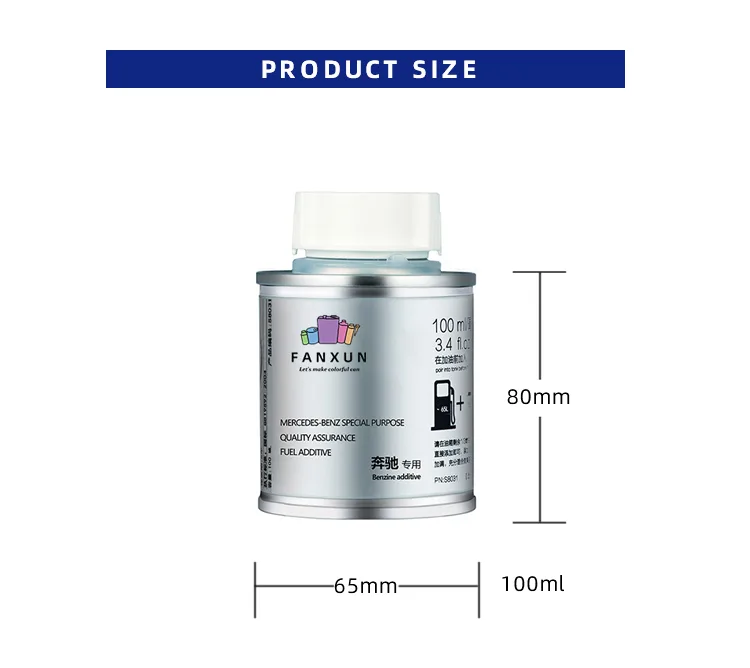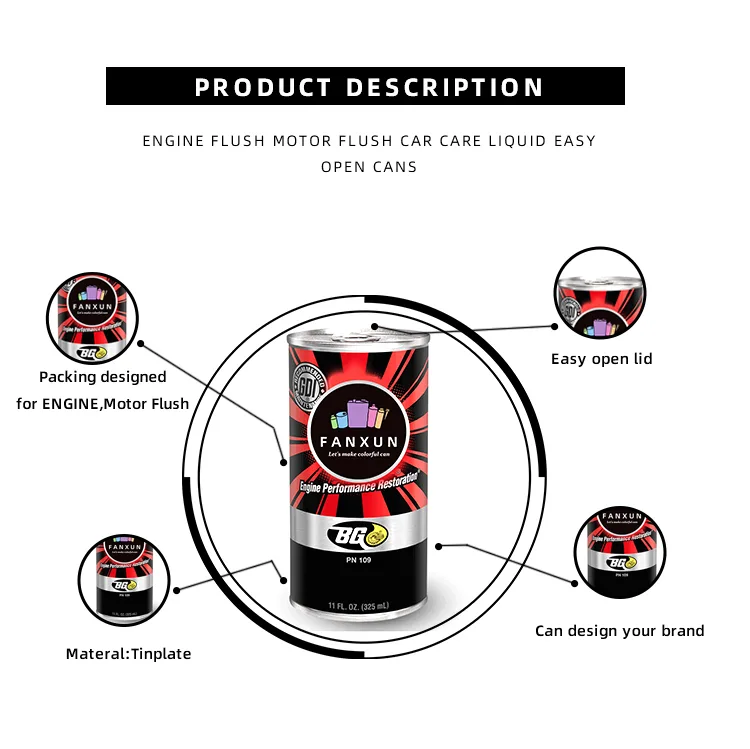Are you confused about which motor oil is best for your car? Don’t worry, we’ve got you covered! With so many options on the market, finding the right motor oil can be a daunting task. But don’t worry, next, we’ll guide you through the process of choosing the perfect motor oil for your vehicle.
Importance of choosing the right motor oil
Choosing the right motor oil is a critical decision for vehicle owners and has a significant impact on the performance, longevity, and efficiency of the engine. The importance of selecting the appropriate motor oil cannot be overstated, and here are some key reasons why it matters:
- 1、Engine Protection: The primary function of motor oil is to lubricate engine components, reducing friction and minimizing wear and tear. The right motor oil forms a protective film on engine parts, preventing metal-to-metal contact and extending the life of crucial components such as the pistons, camshaft, and crankshaft.
- 2、Temperature Regulation: Engine oil helps regulate engine temperature by dissipating heat generated during combustion. It absorbs and carries away heat, preventing the engine from overheating. The right oil viscosity is crucial for maintaining optimal temperature levels in various operating conditions.
- 3、Fuel Efficiency: Choosing the right engine oil can contribute to improved fuel efficiency. High-quality oils with appropriate additives reduce friction, allowing the engine to operate more smoothly. This can lead to better fuel economy and lower overall operating costs.
- 4、Cleanliness and Deposits: Motor oils with effective detergent and dispersant additives help keep the engine clean by preventing the buildup of sludge, varnish, and other deposits. Clean engine components contribute to better combustion, reduced emissions, and improved overall performance.
- 5、Cold-Start Performance: The viscosity of motor oil affects its flow characteristics, especially during cold starts. The right motor oil will have the proper viscosity to ensure easy engine startup in cold temperatures, providing quick lubrication to critical engine parts.
- 6、Extended Engine Life: Proper lubrication and protection against wear and corrosion contribute to the overall longevity of the engine. Regularly using the right motor oil can extend the life of the engine, delaying the need for costly repairs or replacements.
Different types of motor oil
There are several types of motor oils on the market, each designed for specific engines, driving conditions and performance requirements. Next I will list the main types of common engine oils:
- Conventional Motor Oil (Mineral Oil):
- Conventional motor oil is derived from crude oil and is the most basic type of engine oil. It provides standard lubrication and is suitable for regular driving conditions. However, it may require more frequent changes compared to synthetic oils.
- Synthetic Motor Oil:
- Synthetic motor oil is engineered from chemically modified petroleum components or completely synthetic compounds. It offers superior performance, especially in extreme temperatures, and provides better protection against wear, sludge, and deposits. Synthetic oils also have longer change intervals.
- High-Mileage Motor Oil:
- High-mileage motor oil is specifically formulated for vehicles with over 75,000 miles on the odometer. It typically contains additives that condition seals, reduce oil consumption, and minimize engine wear in older vehicles.
- Synthetic Blend Motor Oil:
- Synthetic blend motor oil combines conventional and synthetic oils. It offers some benefits of synthetic oil, such as improved temperature resistance and oxidation stability, at a lower cost than full synthetic oil.
- Viscosity-Grade Motor Oil:
- Motor oil is classified by viscosity, which is its resistance to flow. The two numbers on the oil label (e.g., 5W-30) represent the viscosity at cold and hot temperatures. Lower viscosity oils (e.g., 0W-20) flow better in cold weather, while higher viscosity oils (e.g., 10W-40) provide better protection at high temperatures.
- Multi-Viscosity Motor Oil:
- Multi-viscosity or multi-weight motor oils, such as 10W-30 or 5W-20, are designed to offer consistent performance across a range of temperatures. They provide better cold-start protection while maintaining viscosity at high temperatures.
- Diesel Engine Oil:
- Diesel engine oil is formulated specifically for diesel engines, which operate at higher temperatures and have different lubrication needs than gasoline engines. It provides enhanced soot control, oxidation resistance, and wear protection.
- European Car Formula Motor Oil:
- European car formula oils meet the specifications required by many European car manufacturers. These oils often adhere to specific ACEA (Association des Constructeurs Européens d’Automobiles) standards and may have approvals from European car manufacturers.
- Racing or Performance Motor Oil:
- Racing or performance motor oils are formulated for high-performance and racing engines. They typically offer enhanced lubrication and thermal stability to withstand the extreme conditions experienced in racing.
Understanding motor oil viscosity
Motor oil viscosity is a crucial characteristic that describes the oil’s resistance to flow. It is indicated by a numerical code, such as 5W-30 or 10W-40, where the “W” stands for winter. Understanding motor oil viscosity is essential for choosing the right oil for your vehicle and ensuring proper engine lubrication. Here are key points to help you understand motor oil viscosity:
- Viscosity Grades:
- Motor oil viscosity is graded using two numbers, separated by a “W,” which stands for winter. The first number (before the W) represents the oil’s viscosity in cold temperatures (cold or winter viscosity), while the second number represents its viscosity at normal operating temperatures (hot viscosity).
- Cold Temperature Viscosity:
- The first number in the viscosity grade indicates how well the oil flows at low temperatures. Lower numbers, such as 0W or 5W, denote oils that flow more easily in cold conditions. This is crucial for quick engine starts and proper lubrication during cold weather.
- Operating Temperature Viscosity:
- The second number in the viscosity grade reflects the oil’s viscosity at normal operating temperatures. Higher numbers, such as 30 or 40, indicate thicker oils that maintain their viscosity better at elevated temperatures. This is important for providing sufficient lubrication and protection to engine components under normal driving conditions.
- Single-Grade vs. Multi-Grade Oils:
- Single-grade oils, like SAE 30, have a fixed viscosity and are suitable for specific temperature ranges. Multi-grade oils, such as 10W-30 or 5W-40, are designed to perform well in a range of temperatures. The “W” in multi-grade oils indicates their ability to flow well in winter conditions.
- Seasonal Adaptability:
- Multi-viscosity oils are advantageous in regions with significant temperature variations. For example, a 10W-30 oil is designed to provide the cold-start characteristics of a 10W oil in winter and the high-temperature viscosity of a 30-weight oil during normal driving conditions.
- High-Temperature Stability:
- The second number in the viscosity grade reflects the oil’s resistance to thinning at high temperatures. This is crucial for maintaining proper lubrication under the heat generated during engine operation.
- Manufacturer Recommendations:
- It is essential to follow the vehicle manufacturer’s recommendations for motor oil viscosity, as specified in the owner’s manual. Using the recommended viscosity ensures that the oil meets the engine’s lubrication requirements and provides optimal protection.
- Driving Conditions:
- Consider your typical driving conditions when choosing motor oil viscosity. For example, if you live in a cold climate, a lower cold viscosity (e.g., 5W) may be beneficial for easier cold starts.
Use high-quality tin can sealed engine oil
After purchasing engine oil, some users may not use all of it, so you can use high-quality tin cans to seal the engine oil to ensure product quality and maintain oil performance. Why use tin cans for sealed storage? Here are some of the benefits of using high-quality tin cans for sealed motor oil:
- Leak-proof performance: High-quality tin cans can provide excellent sealing performance and effectively prevent oil leakage. This is critical to ensure that the product is not damaged during transportation and storage.
- Corrosion resistance: Tin cans usually have good corrosion resistance and can prevent the external environment from corroding the engine oil. This ensures that the product maintains high quality and performance throughout its service life.
- Maintains freshness: Since tin cans have superior airtight properties, it helps prevent air and moisture from entering the can, thereby slowing down the oxidation process of the oil. This helps maintain the freshness and stability of the oil.
- Prevents Contamination: Tin cans effectively prevent external contaminants such as dust, impurities and microorganisms from entering the oil. This is critical to maintaining the purity and quality of your engine oil.
- Reliable Seal: Premium tin cans ensure seal integrity between the can and lid through a highly precise manufacturing process. This helps prevent any external factors from disturbing the oil.
- Brand Image: Using high-quality tin cans can enhance the brand image of your product. The exquisite design and reliable sealing performance together convey the message of high quality and trustworthiness to consumers.
- Environmental considerations: Some modern tin cans are recyclable, helping to reduce waste. Choosing eco-friendly materials and designs can help reduce a product’s environmental impact.
Manufacturer’s recommendations:
Oil cans may contain manufacturer’s recommendations or recommendations, such as those for a specific engine model or for use in specific conditions. These recommendations are based on the manufacturer’s expertise and testing and can provide a more accurate guide to oil selection. Following the manufacturer’s recommendations will ensure that the oil you select meets your engine’s
Please note that labels and information on oil cans may vary by manufacturer and region. Therefore, when reading the information on the oil can, ensure that you read and understand the relevant guidelines and logos carefully. If you have any questions, please contact a professional to help you answer your questions and select the product you need






